
Motivation plus study skills plus skills development equals a trained student.
You changed Kyle’s future. Thank you.
Liz N. mother of a son from Guilford, CT
Through creating a holistic student training program, we have transformed hundreds of students from unmotivated, underachieving, insufficiently prepared for college to motivated, achieving, and college ready.
We provide full explanation below. If you want to discuss . youor child, call 860 510-0410 or e-mail us today.
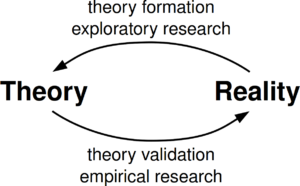 Theoretical Explanation:
Theoretical Explanation:
The Learning Consultants has created numerous programs centered upon the concept of mastery. We all appreciate masters of craft. Master chefs, musicians, carpenters, anyone and everyone who excels at what they do, demonstrates mastery. Strangely, there is no course on how to be a student. Students attend classes in different subjects. But, they are never given training in how to be a student.
“Student Mastery”.provides full training in how to be an excellent student. Motivation is more art than science. But it is the chief differentiator for how we have been able to get remarkable, life changing results. Study skills are easy to convey once the student is properly motivated. Skill development in reading, writing, and math primarily takes time but, again, once we properly motivate our students, we can get them to develop easily enough.
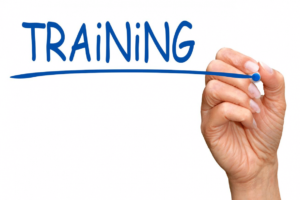 How do you train students?
How do you train students?
We motivate students and we teach best practices for each significant area of student life to help our clients happily succeed in school. Self-motivation is the first key. Most students study to avoid nagging and most parents come to us because they are tired of nagging.
The Student Mastery program’s first priority is moving students from acting solely due to outer-direction (studying only because they are told to do so) to self-direction (performing to their potential for their own reasons). The immediate desired end result — no more need to nag — is good for the whole family. The even more desirable higher end objective — learning to love learning — leads to a lifetime of success.
We’re often asked, “How did you help change our child so dramatically?” That’s a complicated question. But, the simple answer revolves around the effect that any good coach can have on a trainee. We convince our students to care for their own sake. The “how” involves a deep understanding of psychological patterns in order to uncover each student’s unique motivational triggers.
 Some part of this philosophy is unveiled in Motivate Your Son, Daryl Capuano’s book on the subject. Parents usually attempt to motivate students as if they were asking themselves: “what would motivate me?” If your student-child were exactly like you, and the same age as you, then the question might lead to effective insights. But given the age and personality differences between parent and child, the better question is: “What would motivate my specific child?”
Some part of this philosophy is unveiled in Motivate Your Son, Daryl Capuano’s book on the subject. Parents usually attempt to motivate students as if they were asking themselves: “what would motivate me?” If your student-child were exactly like you, and the same age as you, then the question might lead to effective insights. But given the age and personality differences between parent and child, the better question is: “What would motivate my specific child?”
Regardless of the parent’s psychological insight and even ability to communicate those insights, most parents lose their effectiveness to motivate their children sometime during the advent of the teen years. At that point, the parent-child relationship is so immersed in psychological baggage that parents often exhaust their ability to inspire their children.
The main reason is the inherent conflict in your dual roles of boss (you could be doing this better) and unconditional love giver (I love you regardless). Even well-meaning and kindly communicated attempts to help are usually interpreted by the child as nagging. The deterioration of the relationship is often an unforeseen consequence of this dynamic.
Certainly, teens enjoy being with their friends more than their parents but they would enjoy being with their parents more if nagging was minimized. This is the point where The Learning Consultants can best help. Our method involves discovering what motivates each unique younger person at their stage in their development.
We have also discovered common personality and psychological patterns well beyond the obvious among young adults. For this reason, we understand how these patterns might play out and how we can intervene effectively. Our most fulfilling successes have come from helping students develop their own self-awareness and desire to achieve success.
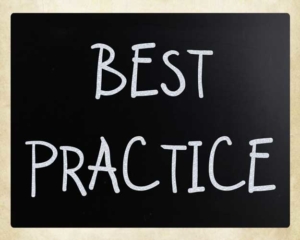 The Best Practices
The Best Practices
Consider the development of any skill set: Tennis. Dance. Violin. Each requires lessons for improvement. Remember your first day on any new job? There likely was some type of training. Now consider the “job” of your child. Student. It is, in fact, the longest job that many people will ever have. Yet, there is no training for the job of student. Students attend classes in individual subjects. Teachers teach their subject matter, not study skills. Sure, some schools provide generalized study tips in pamphlets (unread) or quick orientation programs (minimal attention given). But, most students are left completely on their own to train themselves. And, most do not do a very job. In each area, we have a methodology for student success– a genuine training manual for “students” – that is imparted to our clients. Self-motivation plus training leads to success.
The program is designed to teach students how to excel in the job of “student”. “Student” is the longest job that most people will ever hold. Yet, there is no training for this job. Motivation is the most critical part of the program. But, shifting student psychology is one piece of the whole. There are best practices for student effectiveness that must be instilled after the student is motivated. On the issue of what is we actually do, parents naturally want to know how our program works. Not surprisingly, mothers and fathers approach the issue differently. Mothers will discuss their children and our process for helping their children endlessly. We usually have to bring such discussion to closure in order to move on with my day. Fathers, on the other hand, want quick, bottom-line, sound bites. So, when asked for a super quick summary of our Student Mastery Program, we respond: motivation plus study skills. But, to create a more vivid analogy, consider what a good fitness trainer provides:
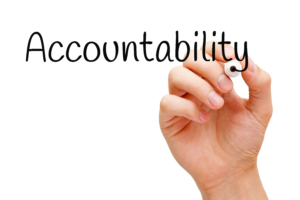
1. Outside accountability
Adult clients of younger physical fitness trainers will apologize for not doing what was asked. This is a strange dynamic. The older adult is the paying client. The younger trainer is the service provider. This scene illustrates the great advantage of the trainer-student relationship and the importance of outside accountability. As most every parent has experienced, the parent-child framework becomes highly challenged during the teen years. The relationship often becomes boss-worker, at least from the child’s perspective. Unfortunately, this leads to the child tuning out the parent. It often astonishes less self-aware parents that an outside academic coach can get their child to do something that they have been telling the child to do for years. But, we have a giant edge: we are not the parents!
2. Structure
If you have an appointment with a trainer, then, at the very least, you know you will be engaged in intense exercise for that hour. Even better, you might have worked out or ate less in order to be in shape for the appointment and so that you could report to the trainer that you have been good! The same paradigms hold true for our students’ relationship with their Student Mastery coaches. At the bare minimum, the student will be on top of his work for the period of engagement with the coach. But, parents have noted delightedly that their children will do their homework and study in between sessions since they knew that they will have to report their progress.
 3. Habits of Excellence
3. Habits of Excellence
There are habits of excellence related to the work of students:
- Study skills
- Time management
- Executive Functioning
- Test-taking mastery
- Homework-busy work mastery
- Classroom/ teacher relationship
To stay with the training metaphor, your trainer knows how to optimally exercise. From both an effectiveness and efficiency perspective, your trainer will show you how to maximize your workout in an optimal time frame. Our Student Mastery coaches do the same for our clients. There are better ways to study, to manage time, to get through busy work, to perform in the classroom, to prepare for tests and do all the big and little things that make students successful. Parents often forget that their knowledge of how to work has emanated from their nearly two decades of experience as a student plus whatever time they honed their work skills in their subsequent jobs. How would a normal teenager figure out the best practices for working effectively? They will either learn on their own, which will be inefficient, or through battles with you, which will be emotionally draining, or with an outside expert who will efficiently and effectively train the student while simultaneously eliminating the unnecessary tension that fills the house due to school.
4. Our Process
After listening to our clients describe their child, we figure out the best Student Mastery coach match, much as you would when picking out an optimal personal trainer. Personality, gender, location, and subjects of challenge are some of the factors that we consider. Quite often, we try to match the student with a coach who is also a subject based tutor in the area of challenge. So, for example, if we have a student who could benefit from our Student Mastery program but is also in need of math tutoring, we will endeavor to match with one of our Student Mastery coaches who can also tutor in math. Are Your Children Reaching Their Potential?Our mission is to empower every student to reach his or her full potential through education.
What does that mean?
At the most basic level, we are teaching students content related to their academic subject.
We teach students how to do a circle problem in geometry.
At the next level, we are teaching students concepts that will help them with all similar problems in that academic subject.
We teach students to do all types of geometry problems by showing them problem solving principles.
Still higher, we are teaching students to enjoy the subject more.
We reframe the student’s dislike of a subject into a challenge from which they will derive satisfaction.
We then move students towards embracing education as a means to greater ends.
We motivate students to strive for goals — both external (achievement-oriented) and internal (psychological satisfaction).
WE INSPIRE STUDENTS TO REACH THEIR FULL HUMAN POTENTIAL
A lofty goal, to be sure, but that’s the ultimate aim of teaching.
Our greatest successes with students from Shoreline, CT and Southeastern CT have been transforming their general attitudes towards productive endeavors (school, work, life in general). If we can get our students to care about building their lives, then that positive attitude can lead to a lifetime of success.
As for school, learning is the real end goal. Learning is the ultimate measure of academic success. Gaining knowledge and developing skills are the most important aspects of school.
However, scholastic performance is the most tangible measure of academic success. And measurable performance is what colleges examine most closely when determining admissions. The process for getting better grades is a mystery to many parents and students. Many parents believe that their children’s grades do not reflect their true potential.
They’re often right.
Creating Self-Directed Students – Self-motivation is the first key.
Most students study to avoid nagging. The Student Mastery program’s first priority is moving students from acting solely due to outer-direction (studying only because they are told to do so) to self-direction (performing to their potential for their own reasons).
The immediate desired end result — no more need to nag — is good for the whole family.
The even more desirable higher end objective — learning to love learning — leads to a lifetime of success.
We’re often asked, “How did you help change our child so dramatically?”
A deep understanding of psychological patterns helps us to uncover each student’s unique motivational triggers.
Parents usually attempt to motivate students by asking themselves: “What would motivate me?”
If your student-child were exactly like you, and the same age as you, then the question might lead to effective insights. But given the age and personality differences between parent and child, the better question is: “What would motivate my child?”
Over time, the parent-child relationship is so immersed in psychological baggage that parents often exhaust their ability to inspire their children. Parents are conflicted by the need to evaluate (you could be doing this better) and the need to love (I love you regardless). A parent’s well-intentioned attempts to help is usually interpreted by the child as nagging.
At this stage, the child has tuned out the parent, who only gets more and more frustrated.
This is the point where The Learning Consultants can best help. Our method involves discovering what motivates each unique younger person at their stage in their development.
We have also discovered common personality and psychological patterns well beyond the obvious among young adults. For this reason, we understand how these patterns might play out and how we can intervene effectively. Our most fulfilling successes have come from helping students develop their own self-awareness and desire to achieve success.
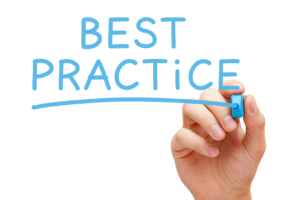
Best Practices Are the Secret to Success
Motivation is a critical issue, but best practices are a critical — and often missing — ingredient for academic excellence.
Many bright students do not know the best practices for school performance. Just as there are best practices for most every work process, there are methods — best practices — for getting good grades.
Top students know these methods. How? Some have intuitively figured out what works. Some have been taught best practices. Some are just lucky that their natural working processes are also excellent studying methods.
We have developed a set of best practices for each significant area of student life to help them maximize their time and effort:
- Motivation
- Classroom Performance
- Daily Studying (including Time Management and Executive Functioning)
- Tests/Projects
Holistic Framework
Most efforts aimed at getting better grades usually focus on subject specific tutoring. This is an excellent step and The Learning Consultants’ offerings provide, encourage, and work in conjunction with any such tutoring.
The Student Mastery program, however, was created for those students who:
1) could benefit from a more holistic framework for practices that are useful in all subjects and,
2) would like long-lasting academic performance lessons designed to endure throughout their academic careers. While we offer a best practices program for getting better grades, the real hope of the program is that success in school will build a greater appreciation for a lifetime of learning.
At the very least, students and parents are delighted by the simple fact that their daily battles over studying substantially decrease or disappear.
Customized For Your Student-Child
The Learning Consultants program has been strategically created and customized to adjust to each student’s needs and goals.
The creation of the Student Mastery program involved review and analysis of an enormous amount of literature on the subject of school performance, as well as a personal examination of what processes have most contributed to improvement from the thousands of students we have taught.
The end result is a program designed to help students maximize their potential for getting better grades.
Our program is divided into distinct lessons but with the view that every program should be individually tailored with customized lessons for each student.
For example, some students “zone out” in class. We help them develop better practices for note-taking and classroom engagement.
Other students have difficulty with assigned reading. We help them with identifying which sections of the material deserve greater focus.
Most students simply want immediate help to deal with mid-terms or finals. In these cases, the working material students receive stems from their current classes. The lessons, modified to student need, are specifically designed to help students prepare for finals.
And it isn’t just what students need or want. Every student is unique, with his or her own personality and style. Most teachers and tutors spend little time differentiating what works best for each individual student. At the Learning Consultants, we do.
That’s what makes us and our students so successful.
 How to become self-motivated
How to become self-motivated
Developing self-awareness begins our approach to self-motivation. Students need to identify their own drivers, values, and dreams. From there, students are taught how to link their key motivations to school success.
Students are also tested to learn their dominant learning style (auditory, visual or kinesthetic) and how to apply their strengths to studying.
With more self-knowledge, students buy into the improvement program. They don’t feel forced into something they don’t want to do. They want to be successful.
Unfortunately, most students do not have their own goals and path. Yes, they have been pre-programmed to “go to college and get a good job.” That’s typically what we hear students say when we ask them about their future plans. They don’t mean what they’re saying; they are merely repeating what they feel is the answer adults want to hear.
Through our proprietary processes, we help students create their own goals and intended path. When they feel their goals are their own, their motivation changes dramatically.
How to study more effectively
Learning to study more efficiently will lead to better grades. The cliché “study smarter, not harder” is actually sound advice. But how do you study smart?
We find that students generally learn best by: 1) “chunking” their study material into distinct segments, 2) studying in 20-minute focused bursts, 3) organizing homework with problem-solving work first and memory based work last. These and other practices enable faster studying with better results.
How to effectively manage time
Between activities, school, and work, student busy-ness has reached insane proportions. By helping students to better manage their time, we lead them not only to higher performance, but to greater health and happiness.
The first skill we focus on for most students is time management. For example, the well-known Covey Four-Quadrant method of understanding where to spend one’s time effectively is commonly taught in the business world but rarely conveyed to young adults. Most students spend very little time in the quadrant titled “important, not-urgent.”
At the Learning Consulants we help transform students’ use of time by actively incorporating outstanding business principles — such as the Covey Four Quadrants — into their lives.
How to perform optimally in class
Students do not fully understand how teachers evaluate them. Even the most objective grading system has room for subjective evaluation.
Understanding the system for evaluation and cultivating better relationships with teachers lead to better grades.
The common complaint of, “I have a bad teacher” is often simply a mismatch between student learning style and teacher instructional style.
Students can learn to adapt their learning style to best match the teacher’s approach. Students should also be mindful that academic transcripts do not reference bad teachers. But grades are grades, and it is the student’s responsibility to earn the best grades possible.
How to become a better test taker
“I’m not a good test-taker” is the excuse many students make for poor performance.
Students say they’re not got at tests the way they might describe their eye color or height, like it is an unalterable characteristic.
At the Learning Consultants, we believe that good test-taking techniques are teachable. With our help, self-described bad test-takers can become good test-takers.
Our students are taught distinctly different ways to prepare for the three common test formats: 1) memory-based, 2) problem-solving, and 3) essay-based. Students are also taught best practices for test-taking, such as process of elimination techniques for multiple choice exams, working towards answers in problem-solving tests, and incorporating critical “buzz words” in essay tests.
How to write for academic success
Learning how to write well has implications well beyond high school. While college professors and corporate managers are not usually common allies, but they are united in their disappointment in what they see as this generation’s poor writing ability.
Writing well is a cornerstone for academic success. The process for creating quality writing is a mystery to most students. The Learning Consultants program teaches students writing techniques that will immediately help in school and, more importantly, develop skills for college and beyond.

Individual Monitoring
The Learning Consultants designed its program with results in mind, custom-tailoring to each individual student’s needs, strengths and weaknesses.
Individual sessions are designed to work with the student’s current classes, mid-terms and, particularly, finals, to help students get better grades in the present and attain mastery for the future.
Through media-enhanced, interactive, engaging activities, we educate in a dynamic, entertaining manner.
Students are stunned that they actually enjoyed their work with us. More importantly, parents delight in how their students transform while they are working with our teachers.


